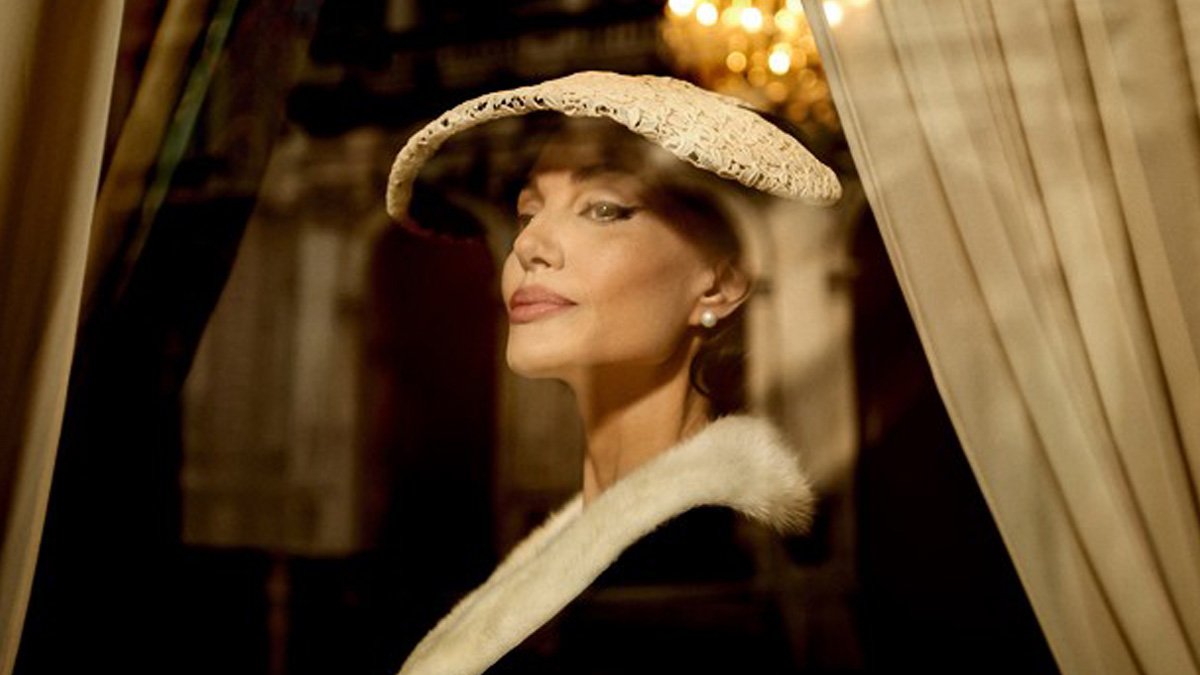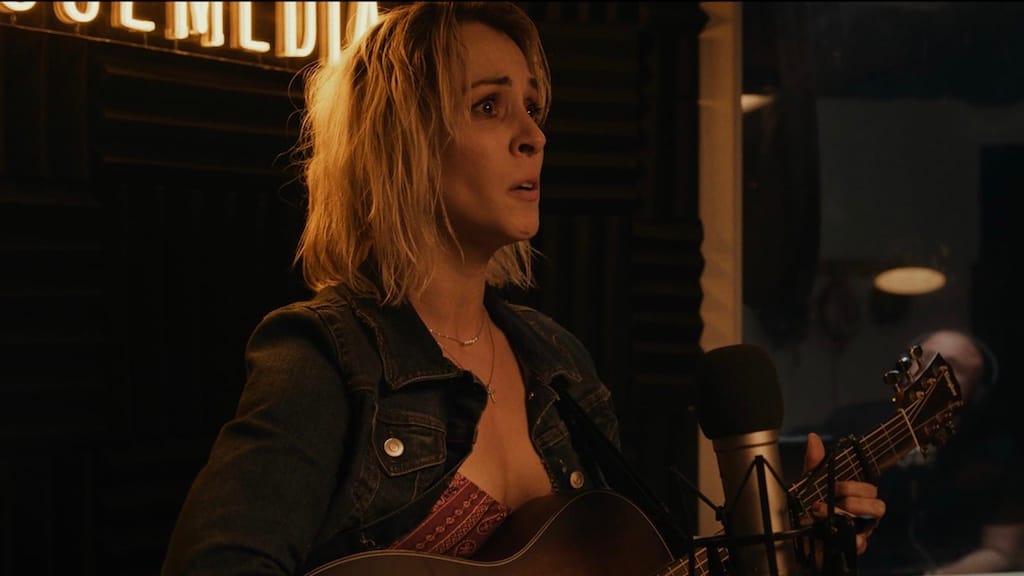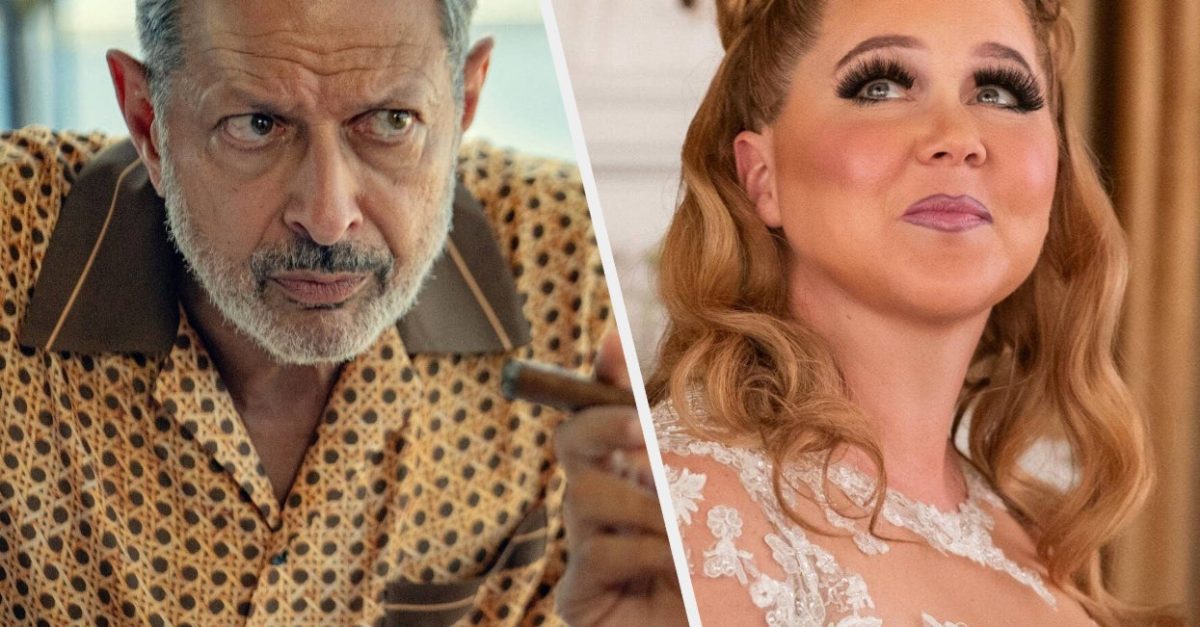
‘Maria’ Film Review: Ethereal Biopic Finds Angelina Jolie At Her Best
Nov 28, 2024
Filmmaker Pablo Larraín has taken to crafting cinematic mood pieces that focus on life-changing events in the lives of iconic 20th century females. 2016’s Jackie covered Jackie Kennedy after her husband’s assassination. 2021’s Spencer examines Princess Diana as she decides to divorce Prince Charles. Now comes Maria, a beautifully designed piece that follows opera diva Maria Callas during her final days. At its best, Larraín’s work is more interesting than the standard biopic and, for a good deal of time, is as complex and involving as Callas herself. When it falters, the film trades an intoxicating examination of a shattered personality for an overuse of moments where its subject wanders listlessly around big empty rooms, occasionally dulling the dramatic effect.
Written by Steven Knight, the screenplay sets itself apart from the more generic structures of most biopics. Knight’s design of his subject is more intricate as the film finds the many layers of Maria Callas slowly being revealed through her memories and how they shape the reality of a life coming to an end. The fractured reality of her final isolated moments reveal the damaging effects of a life spent in the nonstop spotlight, further damaging an already unstable self-confidence. Knight’s screenplay paints Callas as a strong personality to everyone around her, but with an inner uncertainty so defeating that her later life becomes a constant quest to be praised.
Maria begins on Sept. 16, 1977, the day Maria Callas was found dead of a heart attack in her Paris apartment at the age of 53. Callas’ end sets the stage for a film of montages that follows the opera star in the days leading up to that fateful afternoon, as she contemplates a comeback that wasn’t meant to be. Callas sets her own stage and makes her everyday persona perhaps her greatest performance, as her mind dishes out its own perception of her life and career. As she informs her butler and confidant, Ferruccio (Pierfrancesco Favino), “What is real and what is not real is my business”.
Favino and Alba Rohrwacher (who portrays Callas’ only other domestic worker, Bruna) do very well in their important roles. The two aren’t just put-upon servants, they are members of Maria callas’ world who experience almost every emotional turn in the singer’s life. Both have earned Maria’s complete trust and she respects them; allowing Bruna to be an audience while performing for her as she performs the daily duties. Both Favino and Rohrwacher find an earnestness in their performances, each actor coloring their characters with a kindness and caring that gives way to sympathy. Their scenes with Jolie are highlights, especially the back and forth between Callas and Ferrucio. Their exchanges are sometimes banter and sometimes criticisms, but both sides are coming from a place of mutual respect.
Due to his employer’s mental state and addiction to pills, Ferrucio arranges a meeting with a doctor who informs Callas that continuing to perform could damage her fragile heart. Maria continually avoids him, but his persistence is strong, due to the severity of his diagnosis. The doctor informs the singer that there needs to be a serious conversation regarding, “… life and death… sanity and insanity.”
The issue of the singer’s mental state is where the picture finds itself resorting to the long-tired movie biopic motif of “the interviewer who isn’t there”. Callas walks through the streets of Paris with a journalist (Kodi Smit-McPhee) and his cameraman, who interview and film the singer as she spins the tales of her expansive younger life. Smit McPhee’s character is not actually there, as his presence is projected into the singer’s mind by one of her medications that she abuses. In a more desperate reach, the journalist has the same name as the meds, Mandrax. The moments between Callas and Mandrax are useless, adding nothing to the story or the way it is presented. Let Callas walk through Paris and use the location to proper visual effect (which Larraín does), but leave out this embarrassing way to tell the story. Bob Fosse is, perhaps, the only filmmaker who used this trope successfully in 1979’s All That Jazz, where Jessica Lange played Death taking Roy Scheider’s lead character through his life. Beyond Fosse’s film, this overused cliché never works and is a tired crutch for lazy screenwriting. It is beneath such a gifted director and screenwriter to tell their story in this manner.
Maria finds something profound in its examination of Callas’s desire to recapture the internal power of her younger days. Moving between the past and the present, the film shows how Callas’s voice changed through the years, altering not only her ability to remain on the stage, but also her inner and outward morale. Maria Callas found her strength in her voice and used its power to hide the fragility of her existence. As her 50s have arrived, the voice is no longer perfect and Callas’s struggle to reclaim its passion will be the downfall of her sanity and her life.
Angelina Jolie does her finest work since her incredible (and career best) performance in 2015’s unfairly ignored By The Sea. This is a finely calibrated performance. The actress uses a deceptively stoic demeanor to show a woman on the verge of cracking her public facade to give way to the shattered personality she has become. Jolie’s angular facial features and deep eyes project Callas’s growing detachment from her fading reality, while the shifting tones in her line deliveries show a woman who can still command respect from all who enter her orbit. Jolie uses sharp yet calm tones when shaming the journalists who crafted untrue stories about her, but finds something more wistful when Callas remembers her time with Aristotle Onassis (Haluk Bilginer). As Callas sinks into addiction, there is no need to overplay. Our star finds a naturalistic tone in everything Callas does.
There is an elegance to Jolie’s work here. Her measured speech patterns and graceful movements allow for Callas to float through her worlds as if it all was one heavenly stage designed just for her. Jolie took vocal lessons for 7 months and her singing was blended with Callas’s own. Larraín doesn’t always find a seamless flow in the performance scenes, as there are moments where the lip syncing is just a bit off, but there is such undeniable might and beauty to Maria Callas’s vibrato (and Angelina Jolie’s supreme dedication), that those moments manage to cast a spell over the audience.
Larraín is a gifted director with a good eye. His pictures are beautifully crafted and benefit from an almost surrealistic dreamlike aesthetic. Maria creates a seductive aura through striking cinematography from Edward Lachman and Guy Hendrix Dyas’ award-worthy production design. The look of this film is absolutely transfixing, blending the soulful beauty of its star with the stunning grandeur of the French, Greek, and Hungarian locations.
Maria is a subject that is close to the director’s heart. Larraín has spoken about his deep connection to music, especially opera. As an artist, he is drawn to the magnitudes of what a great musical piece can do for the mind. The beautiful sounds of a perfectly executed aria, for example, can capture one’s soul and transcend the ugliness of the world, if only for the moment. This perception is beautifully captured in one of the film’s most affecting scenes; a moment from Callas’ childhood encounter with the Nazis, where her voice moves one of the commanders to tears.
The essence of the film lies in the power of Maria Callas’s voice and what it meant to so many. It is here where Maria finds its greatest strength.
Maria
Written by Stephen Knight
Directed by Pablo Larraín
Starring Angelina Jolie, Pierfrancesco Favino, Alba Rohrwacher, Haluk Bilginer, Kodi Smit-McPhee
R, 124 Minutes, Netflix, Filmnation Entertainment
Publisher: Source link
TV Shows That Got Canceled In 2024
TV Shows That Got Canceled In 2024 Which 2024 canceled TV show will you miss the most? Share your pick in the comments! Disclaimer: This story is auto-aggregated by a computer program and has not been created or edited by…
Dec 22, 2024
How The Talk Emotionally Ended After 15 Years
The Talk has officially said "Goodbye." After 15 seasons and 2,993 episodes, the CBS daytime show came to an end on Dec. 20 with a heartfelt farewell from hosts Akbar Gbajabiamila, Amanda Kloots, Natalie Morales, Jerry O'Connell and Sheryl Underwood. The episode began with a standing ovation for the…
Dec 22, 2024
Jennifer Lopez Asked About Turning 60, Age
Jennifer Lopez Asked About Turning 60, Age Never ask a woman her age, a man his salary, or Jennifer Lopez how she feels about turning 60. On Sunday, the actor was interviewed by Variety amid the release of her new…
Dec 21, 2024
Lala Kent Shares Text With Ally Lewber After James Kennedy’s Arrest
The BCU (Bravo Cinematic Universe) was shaken on March 3, 2023, when it was confirmed that Tom and Ariana had ended their nine-year relationship amid the revelation that he'd had a seven-month affair with Raquel. "I made mistakes, I was…
Dec 21, 2024











